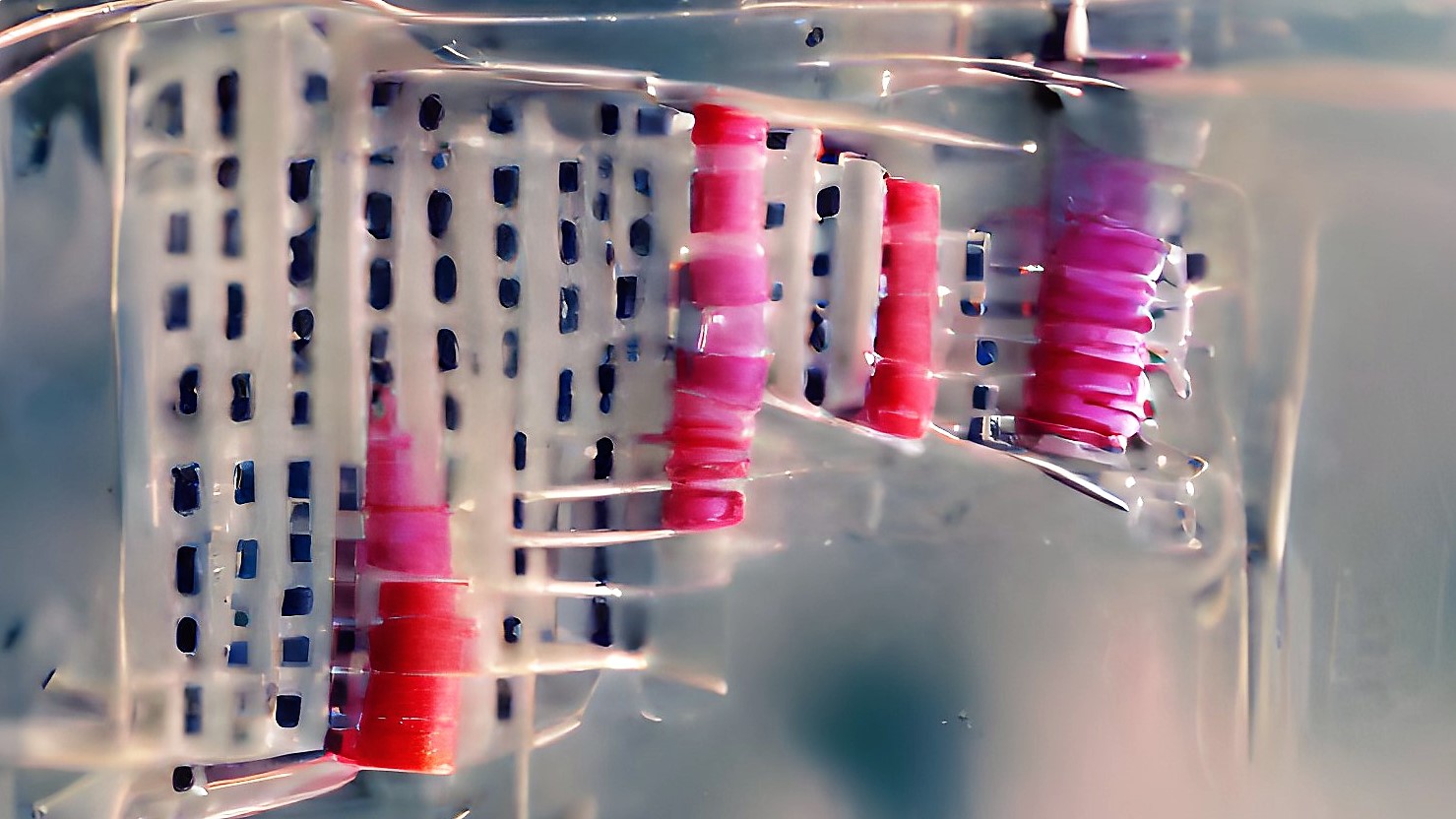
Synthetic Biology & Gene Editing
Scientific research has developed the capability to edit the building blocks of life. The technology can also be used to redesign human capabilities and strengths. How will these advances unfold?
In recent years, research has evolved to effectively modify many of the inherent characteristics of living organisms. The core technology proved its efficacy to help humanity with the development of the BioNTech and Moderna vaccines. The technology can also be used to redesign human capabilities and strengths. In some ways, the biotech industry can serve as an early model of self-imposed constraints on certain types of uses–even when they serve the narrow interests of their creators.
During the semester, we invited a number of experts in synthetic biology and gene editing to delve into current tech, like CRISPR, which has given us unprecedented control over the basic building blocks of life. Synthetic biology has the potential to change large parts of the economy including healthcare, manufacturing, and agriculture. Gene drives could be used to benefit public health, the environment, agriculture, and animal well-being. However, real-world use of self-propagating gene drive systems may incur ecological risks and diminish the public’s trust in science and governance. Students were asked to consider: What, if any, restrictions should we place on newly emerging tech in synthetic biology and germline editing?
“Synthetic biology companies use our DNA to do cool stuff. We provide the picks and shovels, and our customers are digging for gold.”
~Dr. Emily Leproust, co-founder of Twist Bioscience
Our guests included Dr. Sekar Kathiresan, a cardiologist and geneticist who founded and serves as CEO of Verve Therapeutics, a company that is pioneering a new approach to the care of cardiovascular disease by developing single-course gene-editing therapies. Dr. Emily Leproust, co-founder of Twist Bioscience and a pioneer in the high-throughput synthesis and sequencing of DNA. Christoph Lengauer, co-founder and Chief Innovation Officer at Thrive, a company that has created an innovative approach to cancer detection. Alexis Borisy, founder, Chairman, and CEO of EQRx, a biotechnology company committed to making innovative medicines at dramatically lower prices. Dr. Reshma Shetty, co-founder and COO of Ginkgo Bioworks, a company that uses advanced technology to develop new organisms and grow better products. Dr. Austin Burt, evolutionary geneticist, and biologist at the University of London’s Imperial College. Dr. Diabate Abdoulaye, medical entomologist and head of Target Malaria in Bana, Burkina Faso. Dr. Natalie Kofler, strategic advisor for the Scientific Citizenship Initiative at Harvard Medical School.
Class of '22 Predictions on Syn Bio and Gene Editing Tech
We Will Need To Leverage New Decentralized Ways of Organising To Overcome the Existential Risk Challenges from New Technologies and the Climate Crisis
The main challenge we are facing is not the climate crisis, but the climate governance crisis.
Solving Climate Change: Aligning Incentives and Approaching Global Unison
We face a real and present danger in human-accelerated climate change.
Continue Reading Solving Climate Change: Aligning Incentives and Approaching Global Unison
Synthetic Biology Will Solve the Climate-Change Problem by Enabling Carbon Capture And Sequestration through Natural Means
Over the last 10 years, synthetic biology has undergone a technological revolution to allow rapid, precise, automated, and high-throughput engineering of biological cells for targeted purposes.
Long-term Hope for Organ Recipients
The methods of producing and procuring replacement organs will undergo dramatic change in the next decade.
Cherry-Picking Genes Will Create A Caste System
Genetic engineering has been around for a long time, however, so far it has been an extremely expensive, inaccurate and unscalable process.
Continue Reading Cherry-Picking Genes Will Create A Caste System
Human Germline Editing: A Potential Source of Inequality
It is critical to consider the extent to which technological developments can impact economic and social disparities around the world.
Continue Reading Human Germline Editing: A Potential Source of Inequality
CRISPR: Survival of the Richest?
Gene editing is the process by which the existing DNA sequence of a species is altered by editing the current sequence of DNA or removing parts of the DNA sequence, an approach closer to natural random genetic mutations that can occur in nature over time.





